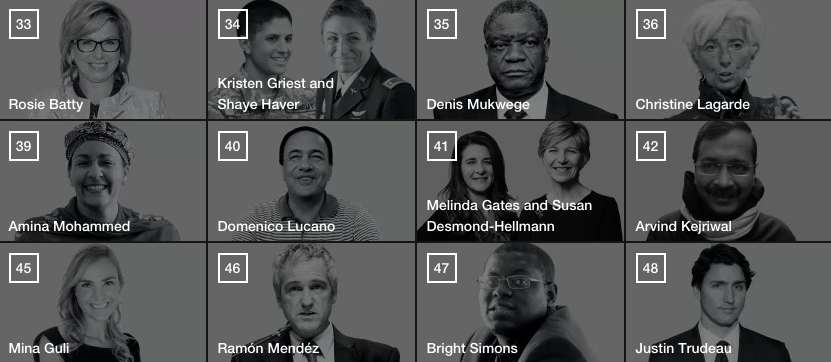Arvind Kejriwal Only Indian on Fortune's 50 Greatest Leaders List

NEW DELHI: Delhi Chief Minister Arvind Kejriwal has been named among the world’s 50 greatest leaders by Fortune magazine, landing at number 42 on the list. The Aam Aadmi Party leader is the only Indian leader to make the list.
“It isn’t enough to be accomplished, brilliant, or admirable. We recognize those who are inspiring others to act, to follow them on a worthy quest, and who have shown staying power,” the magazine explains.
What’s more, it seems like it is the Delhi government’s odd-even policy -- introduced as Delhi faced record levels of pollution -- that is to be credited for Kejriwal’s entry on the list.
“When Kejriwal unveiled a blueprint to tackle the smog in New Delhi—called the world’s most polluted city by the World Health Organization—many were skeptical. A key component: an “odd-even” pilot project in which vehicles were allowed on the roads only on alternate days. The uplifting result of the pilot this January: Roads were less clogged, hourly particulate air pollution concentrations dropped by 13%, and citizens could breathe deep,” Fortune said.
The Delhi government’s odd-even scheme, initially met with skepticism, was a huge success in the capital city. A largely self-regulated scheme, Delhi residents seemed to take pride in following the odd-even rule, where cars with odd number plates and cars with even number plates were allowed to ply on alternative days of the week. Exceptions were made for certain professionals, and for women drivers. Public transport was exempt from the scheme, with the Delhi government having to increase the number of buses on the roads.
Despite its success in terms of implementation -- as traffic in Delhi was most certainly reduced -- critics allege that the scheme was not entirely successful. An article in Forbes magazine noted that:
“Council on Energy, Environment and Water (CEEW), an independent think-tank in Delhi, in collaboration with the Energy Policy Institute at the University of Chicago(EPIC), independently measured air quality and traffic volumes at five important locations (viz. Connaught Place, GTB Nagar, IIT Delhi, Mathura Road, and Shadipur) across New Delhi, over the last three weeks. The data collected using low-cost pollution monitors showed a mixed result:
- The average air pollution levels increased in the first week of January in comparison to the previous week. However, in the second week of January, air quality was marginally better, but still poorer than the last week of December.
- Average PM 2.5 level of 306 µg/m3 was observed during the first two weeks of January 2016, similar to average PM 2.5 level of 330 µg/m3 observed during the first fortnight of January 2014. However, the first two weeks of 2015 had a lower average PM 2.5 level of 226 µg/m3 due to unseasonal rains and winds. In other words, meteorological variables such as temperature, wind speed and precipitation have a significant impact in the short-term. What that means is it’s hard to provide conclusive evidence on the impact of the odd-even policy on air quality.
- The daily average number of vehicles increased by 10% in these five locations during the first two weeks of January, as compared to the last week of December. This increase was primarily driven by an increase in 2-wheelers (17%), 3-wheelers (12%), taxis (22%) and private buses (138%).
- The number of private cars on the road, however, did not reduce. (Maybe because of the long list of exemptions that were built-in, including for single women drivers. But also maybe because this data is being compared with the last week of December, a typically slow week in the city as schools and colleges are shut and many people are on vacation or work from home. Trust me, the congestion on the streets was much less than “normal” and in fact, a day after the scheme expired, traffic snarls and gridlocks were back on the streets.)”
Resident of Delhi, however, were largely in favour of the scheme -- if for the traffic ease and not the impact on pollution.
Keeping Kejriwal company on the 50 greatest leaders list are Amazon CEO Jeff Bezos who topped the list; German chancellor Angela Merkel at number 2; Myanmar’s Aung Saan Suu Kyi -- whose party won the elections in the country -- at number 3; Pope Francis at number 4; and Apple CEO Tim Cook rounding off the top 5.
Among South Asian leaders, Bangladesh’s Sheikh Hasina came in at number 10 and Tshering Tobgay, the Prime Minister of Bhutan at number 50.
See the full list here: http://fortune.com/worlds-greatest-leaders/



